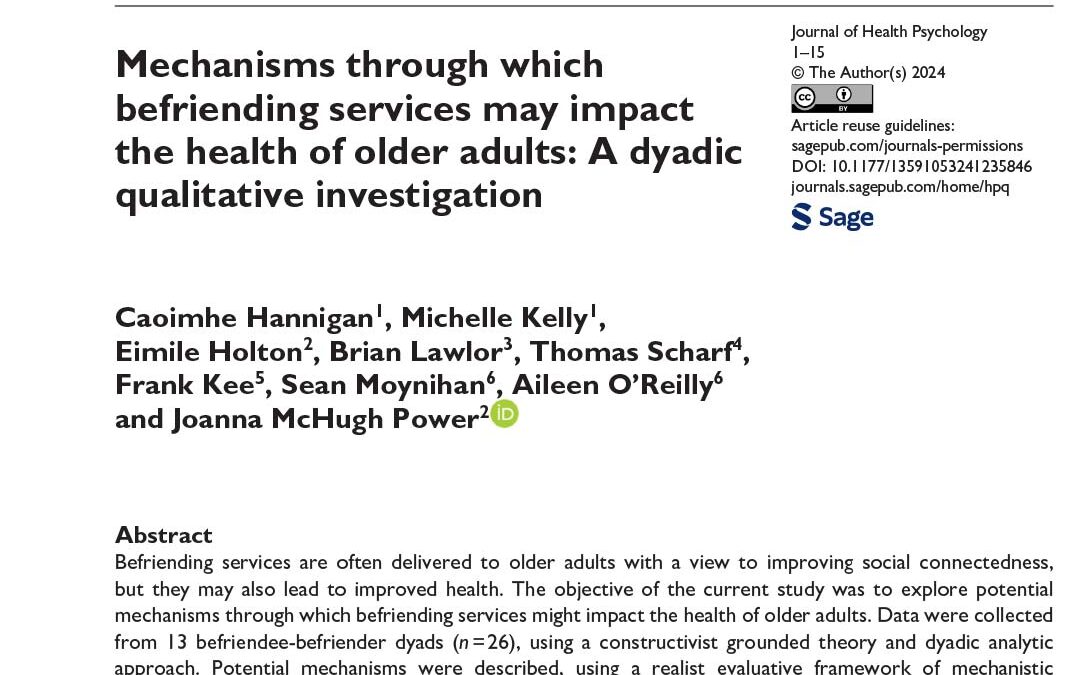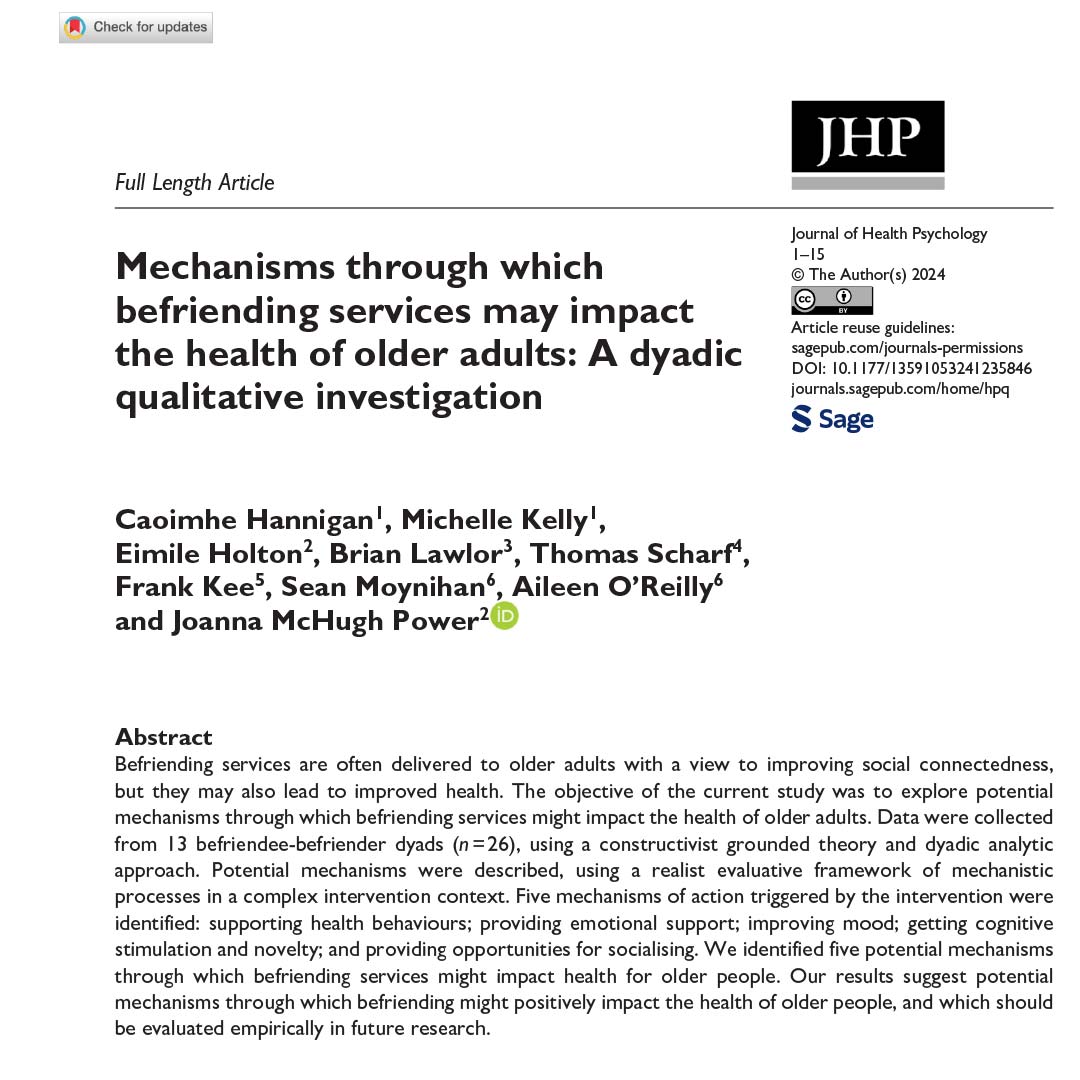Support and befriending is one of the key services provided by ALONE to improve older people’s social connectedness. ALONE’s Visitation Support and Befriending involves matching older people with trained volunteers, also referred to befriendee-befriender couples. The current academic paper explores the potential mechanisms through which befriending services might impact the health of older adults. To do this, 13 befriendee-befriender dyads (n = 26) who had a befriending relationship for at least 1 year were interviewed on the phone. The study received approval from the Research Ethics Committee at the Faculty of Health Sciences, Trinity College Dublin. The study found five mechanisms of action triggered by the befriending intervention.
Mechanism 1: Befriending services supported older person’s engagement with health behaviours, such as exercise engagement and healthy nutrition. Mechanism 2: Befriending services played a role through the emotional support provided by the befrienders and in some cases, they became confidantes for the older person, particularly in the context of family difficulties. Mechanism 3: Many interviews highlighted the fun involved in the befriending visits, which often led to health improvements as some older people referred. Mechanism 4: It was found that befriending may improve the cognitive health of older people, by introducing novelty and cognitive stimulation to the older person. The visits were sometime described as being educational and novel due to the opportunity for intergenerational exchange. Mechanism 5: Befriending service offered further opportunities for socializing. This paper demonstrates the value of befriending services in improving and maintaining the health of older people. Future research in the field can offer more details about the link between befriending and health.



